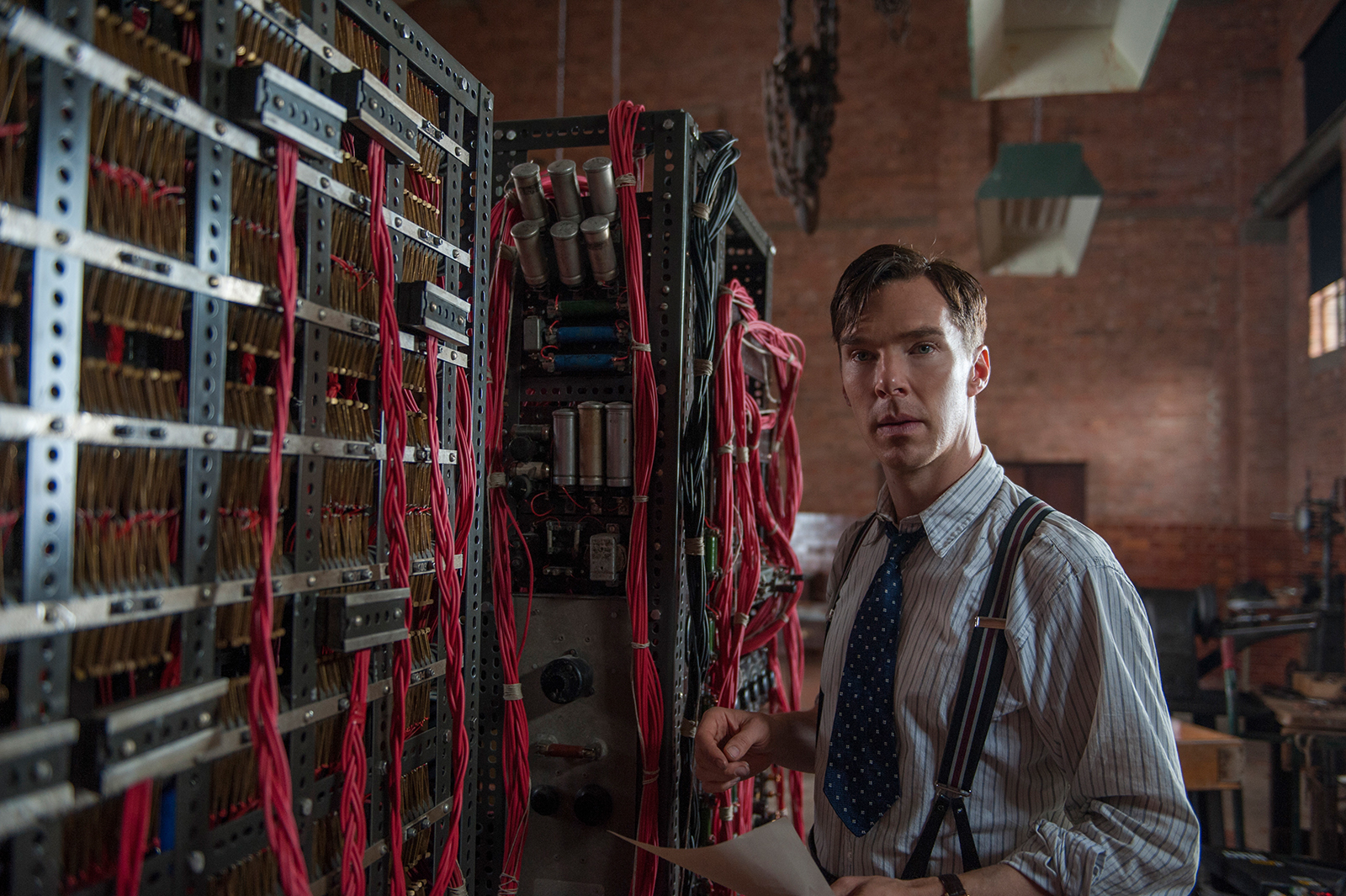The Imitation Game proves that a ripping true story can survive even the Oscar-bait effect. This is a profile of Alan Turing: British mathematician, code-breaker of Germany’s Enigma device (a feat of decrypting that significantly shortened World War II, per Winston Churchill), father of the machines we now call computers. Turing’s achievements were long kept secret, although he’s been depicted a few times in recent years, including a BBC take with Derek Jacobi (Breaking the Code, 1996) and a fictionalized film with Dougray Scott (Enigma, 2001). But The Imitation Game is bound to prove definitive, if not Oscar-winning.
Here Benedict Cumberbatch plays the brilliant Turing as a borderline-autistic personality, a rude brainiac who fiddles with his big computing machine while his colleagues (led by Matthew Goode, Mark Strong, and Charles Dance—that British acting pool remains deep) stand around scratching their heads. Turing’s homosexuality only gradually enters the picture, and even when he proposes marriage to fellow code-breaker Joan Clarke (Keira Knightley), it isn’t treated as a really big deal. (At the end of Turing’s criminally shortened life, it is treated as a big deal.)
Even if the movie sketches simplistic conflicts among its principal characters, the wartime world is so meticulously re-created and the stakes so compelling that it emits plenty of movie-movie sparks. Norwegian director Morten Tyldum’s previous film was the ridiculously entertaining Headhunters, and although this is a blander affair, it does keep its momentum going. Plus, Cumberbatch and Knightley are a dream couple, thoroughbred actors who can’t wait to get on the track and run.
But the real reason to like this movie is that it’s so diligently pro-weirdo. Remember how The Social Network, another study of a difficult egghead, turned away from cold fish Mark Zuckerberg in favor of his cuddlier partner Eduardo Saverin—a figure with whom the audience could more easily identify? The Imitation Game doesn’t sell out its main character.
Especially in Cumberbatch’s truly eccentric hands, Turing stays defiantly what he is: an oddball who uses rationality to solve problems. This comes to a dramatic head after Enigma is decoded: The scientists could save Allied lives in the short run by exploiting the enemy’s information, but they don’t because that would tell the Germans that Enigma has been cracked. Cool heads, and a stiff upper lip, must prevail.
The film suggests that Turing does not have to become a nicer person—he beat Enigma and won World War II, so let him be.
film@seattleweekly.com
THE IMITATION GAME Opens Thurs., Dec. 25 at SIFF Cinema Egyptian, Sundance, and other theaters. Rated PG-13. 113 minutes.







